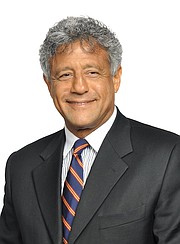By NEIL HARTNELL
Tribune Business Editor
nhartnell@tribunemedia.net
Oil exploration opponents were last night faced with having to seek the Supreme Court’s permission for more time despite raising the $200,000 to cover Bahamas Petroleum Company’s (BPC) legal costs.
Fred Smith QC, the Callenders & Co attorney and partner, told Tribune Business he was “aghast” at the oil explorer’s refusal to co-operate in overcoming The Bahamas’ strict bank account opening procedures so that the “security for costs” could be secured in compliance with the Supreme Court’s orders.
He argued that BPC’s decision to decline an extension for his clients, Save the Bays and Waterkeepers Bahamas, showed that it was “obsessed with striking out” the activists’ Judicial Review challenge and was using the “security for costs” demand as a tactic to achieve this.
Asserting that BPC would have agreed to an extension “if they were really interested in having security for their costs”, Mr Smith said the oil explorer - which recently failed to strike commercial quantities of oil in Bahamian waters with its Perseverance One well - had “waited until the 59th minute of the 11th hour for time to run out” to decline co-operation.
An e-mail from Adrian Hunt, an attorney and partner at Graham, Thompson & Company, the law firm acting for BPC, responded to Mr Smith’s requests by saying: “We have received instructions and can confirm that our clients are not prepared to agree the extension.”
That e-mail was sent at 11.07am yesterday, which was one day after the March 30, 2021, deadline set by Justice Petra Hanna-Adderley for the activists to produce the $200,000 bond to cover BPC’s costs so that the substantive issues raised by their Judicial Review challenge can be heard.
The environmentalists now face having to go back before the Supreme Court to argue their case for an extension of the March 30 deadline to April 15. This point has been reached despite Mr Smith and his law firm, Callenders & Co, reaching out to BPC’s attorneys from Monday, March 29, confirming their clients have raised the $200,000 and seeking help in overcoming The Bahamas’ Know Your Customer (KYC) rules.
Mr Smith, according to documents filed with the Supreme Court, wrote to Leif Farquharson on Monday, March 29, telling him: “We have been informed by our clients that they have raised the full $200,000 through various fund-raising efforts internationally, and that these funds are currently being transferred to Callenders.
“Given the onerous KYC and administrative requirements of our banks, we foresee some delay in arranging the mechanisms for securing these funds as ordered. Can we please have your agreement to have the funds paid into a joint account which can be set up in the name of one of Graham Thompson’s partners and one of the partners of Callenders.”
Dawson Malone, a Callenders & Co attorney, then wrote to Mr Hunt the following day, which was the deadline set by the Supreme Court, confirming that the $200,000 had been received and requesting that an extension of time be agreed so that the necessary bank account arrangements could be made.
BPC’s refusal to co-operate affirms its desire to see-off the activists, and ensure the Judicial Review challenge to the permits and approvals for its Perseverance One well - and the processes by which they were issued - do not proceed. And there is nothing in law that says it must co-operate.
However, Mr Smith blasted: “I am aghast that BPC would refuse to co-operate and agree an extension of time to set up the security documents between the two law firms. This demonstrates beyond a reasonable doubt that BPC is obsessed with striking out Our Islands, Our Future’s [of which Save the Bays and Waterkeepers Bahamas are part] cause.
“If they were really interested in having security for their costs why wouldn’t they simply agree one or two days later to setting things up? Everybody in The Bahamas knows how difficult banking is, how much KYC and red tape there is in the financial services sector.
“We received the money in time from our international donors and we did the considered thing to allow BPC to agree an extension. Instead, we are going to have to waste valuable resources and judicial time arguing procedural trench warfare tactics instead of the merits of the case,” he continued.
“BPC waited until the end of the 11th hour. BPC waited until the 59th minute of the 11th hour for time to run out to say ‘no’, even though we approached them days before.”
Suggesting there were wider ramifications, Mr Smith said: “This is another example of why Judicial Review in The Bahamas always costs so much money because at every step of the way either the Government or the developer fails to make discovery, objects to leave, applies for security for costs or when you actually provide security for costs they won’t agree to a few days extra to set up the documents.
“This demonstrates everything we said about BPC - that their intention was to simply block, delay, prevent and drive us from access to the court - was correct.... Hopefully people will see how difficult it is for civil society, NGOs, environmentalists to pursue public interest cases as constant procedural roadblocks are being set up to the resolution of what should be a quick, inexpensive and efficient Judicial Review process.”





Comments
Use the comment form below to begin a discussion about this content.
Sign in to comment
OpenID